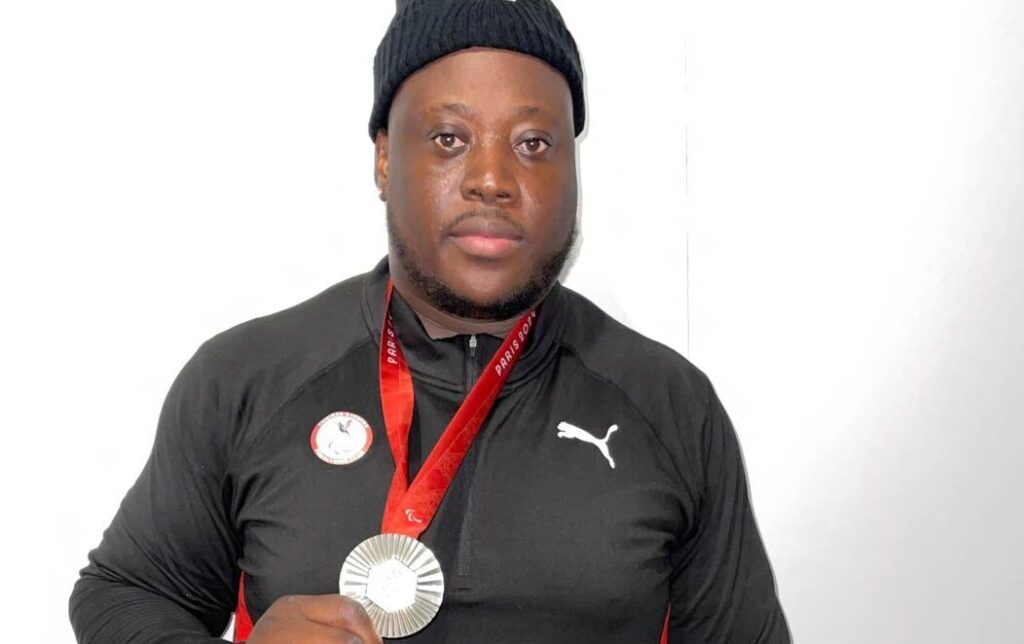Akeem’s silver lining

AKEEM STEWART, 32, became one of this country’s most decorated Paralympians when, amid difficult circumstances, he earned silver in the men’s discus throw F64 final at the Paris 2024 Paralympic Games on September 5. We salute him.
Mr Stewart was the lone representative from this country at the games. He was the only Caribbean athlete in his event. His country had had a disappointing year overall in global sports. There was much weight on his shoulders as he made his return to Olympic competition after missing the 2020 edition of the event, held in Tokyo, Japan. His father had reportedly been ailing.
Notwithstanding, he delivered. Partly fuelled by healthy servings of pelau and sorrel – given to him by generous Trinidadians resident in France – he threw a season’s-best distance of 59.66 metres at the Stade de France to earn his podium place. American Jeremy Campbell took gold.
With this result, Mr Stewart, who has won three medals overall – one gold and two silvers – joins the likes of Rachel Marshall, who won two gold medals and one bronze in the javelin throw L5, shot put L5 and 100m freestyle L6 respectively at the 1984 Summer Paralympics in New York, US. Nyoshia Cain won bronze in the 100m T43-44 at 2016 Rio de Janeiro.
Considering there have been 17 Paralympics, this country’s medal tally is impressive, even more so considering Trinidad and Tobago participated in just the games of 1984, 1988, 2012, 2016 and 2024.
However, we note with concern the fact that this country sent only one participant to this year's event.
The Paralympics have been growing. The games have seen a consistent increase in the number of athletes, moving from 3,951 in 2008 in Beijing, China, to 4,463 this year.
In contrast, it seems the Trinidad and Tobago contingent has been shrinking. For its first appearance, the country sent eight athletes, for its second, four. In 2012, four competed and in 2016 three.
This falloff is significant precisely because of how successful the country has been in the past.
Also, if these games are useful, if informal, windows into the overall level of the participation of the disabled within a country, questions arise.
What significant strides have been made in this regard in recent decades?
Participation is not just a question of doing basic things like ensuring the accessibility of public buildings and shared public spaces, as well as providing welfare grants.
It is also about the availability of support, as well as social attitudes to those who differ or are marginalised more generally.
Paralympians like Mr Stewart inspire societies to remember what is best within each of us.
But they also throw down the gauntlet of challenging us to do better.

Comments
"Akeem’s silver lining"